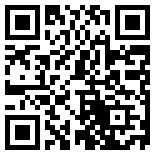Effective C++笔记之五:了解C++默默编写并调用哪些函数
扫描二维码
随时随地手机看文章

什么时候empty class(空类)不再是个empty class呢?当C++处理过它之后。是的,如果你自己没声明,编译器就会为它声明(编译器版本的)一个copy 构造函数、一个copy assignment操作符和一个析构函数。此外如果你没有声明任何构造函数,编译器也会为你声明一个default构造函数。所有这些函数都是public且inline。因此,如果你写下:
class Empty {};
这就好像你写下这样的代码:
class Empty
{
public:
Empty(){.....} //default构造函数
~Empty(){.....} //析构函数
Empty(const Empty & rhs) {.....} //copy构造函数
Empty & operator=(const Empty & rhs) {.....} //copy assignment操作符
}; 惟有当这些函数被需要(被调用),它们才会被编译器创建出来。下面代码造成上述每一个函数被编译器产出:
Empty e1; //default构造函数 //析构函数 Empty e2(el);//copy构造函数 e2 = e1; //copy assignment操作符
需要注意的:
1.编译器产出的析构函数是个non-virtual,除非这个class 的base class自身声明有virtual析构函数(这种情况下这个函数的虚属性(virtualness)主要来自base class)。
2.如果手动声明了一个构造函数,编译器不再为它创建default构造函数.
3.默认赋值运算符不能生成的3种情况:数据成员是引用型、const型或者父类的赋值运算符声明为private。例如:
#include#includeclass Dog
{
public:
Dog(const std::string& name, const int age)
{
this->name = name;
this->age = age;
}
~Dog(){ }
private:
std::string& name;
const int age;
};
void main()
{
std::string name1("Big Yellow");
std::string name2("Big Yellow");
Dog bigYellow1(name1, 3); // 大黄1于去年归西了
Dog bigYellow2(name2, 4);
bigYellow1 = bigYellow2; // 大黄2取代了大黄1的位置
// error C2582: “operator =”函数在“Dog”中不可用
} 导致error是因为C++并不允许"让reference改指向不同对象",且更改const成员是不合法的。
#include#includeclass Animal
{
public:
~Animal(){};
private:
Animal & operator=(const Animal & rhs); //copy assignment 操作符
};
class Dog :public Animal
{
public:
Dog(const std::string& name, const int age)
{
this->name = name;
this->age = age;
}
~Dog(){ }
private:
std::string name;
int age;
};
void main()
{
std::string name1("Big Yellow");
std::string name2("Big Yellow");
Dog bigYellow1(name1, 3); // 大黄1于去年归西了
Dog bigYellow2(name2, 4);
bigYellow1 = bigYellow2; // 大黄2取代了大黄1的位置
// error C2248: “Animal::operator =”: 无法访问 private 成员(在“Animal”类中声明)
}导致error是因为如果某个base classes将copy assignnment操作符声明为private,编译器将拒绝为其derived classes生成一个copy assignment操作符。毕竟编译器为derived classes所生的copy assignment操作符想象中可以处理base class成分,但它们当然无法调用derived class无权调用的成员函数,此时编译器就无能为力了。







